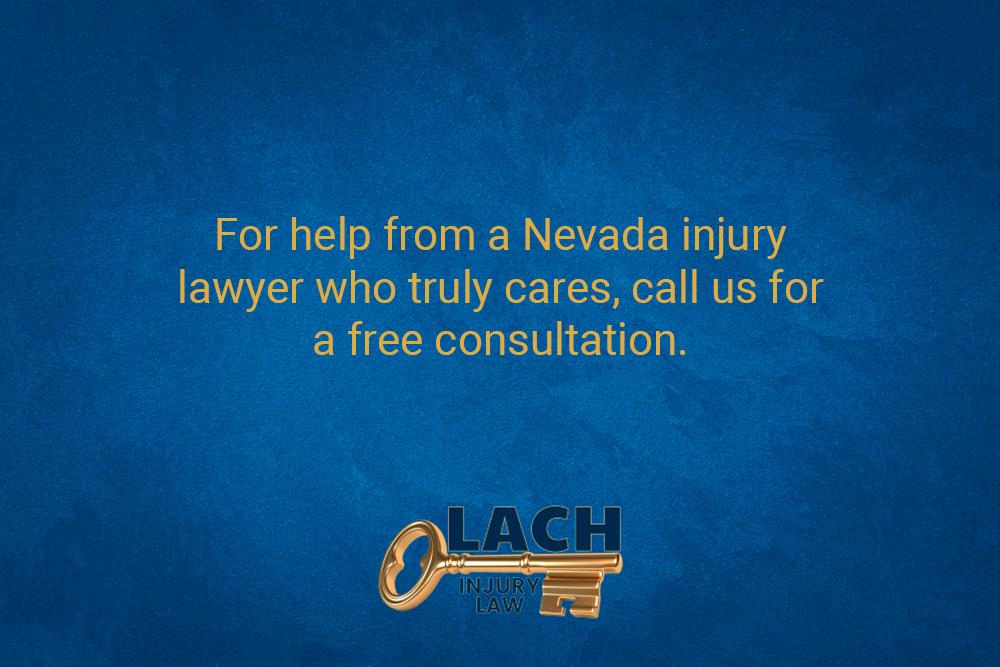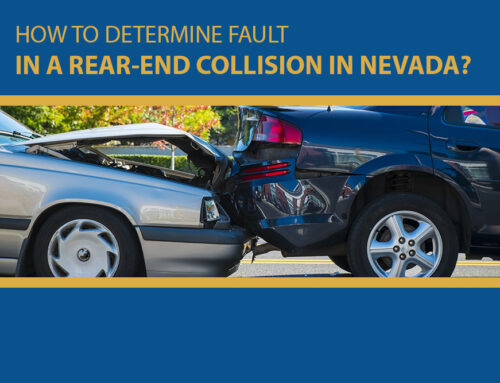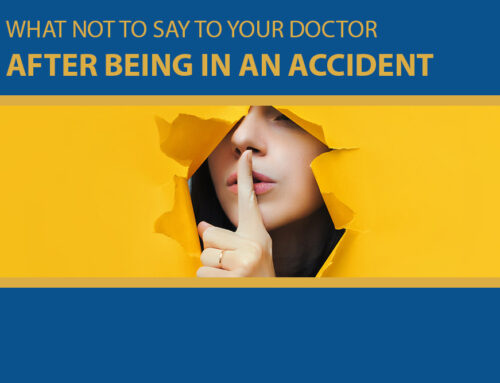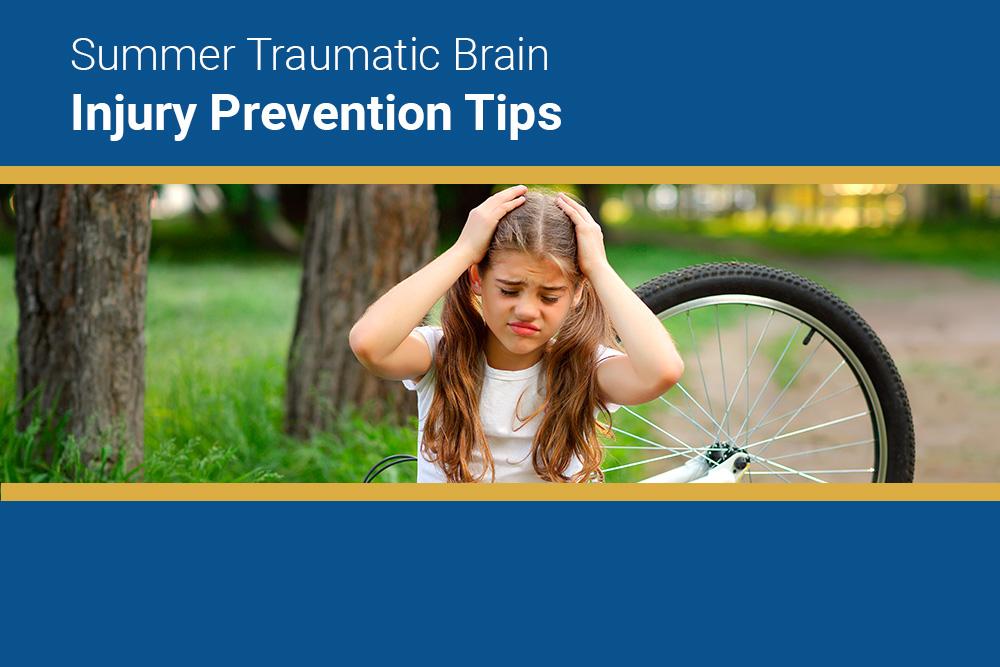
Adults and children alike look forward to the extended daylight hours of summer. Everyone gets excited about taking trips, playing outside, and simply having more time to relax. You may not see a downside to this, but more travel and play raise your risks for accidents and, specifically, traumatic brain injury (TBI). Nevada personal injury attorneys who have represented TBI victims know the toll these injuries take and encourage you to follow these summer safety tips.
Why Summer Is a Risky Time for Accidents
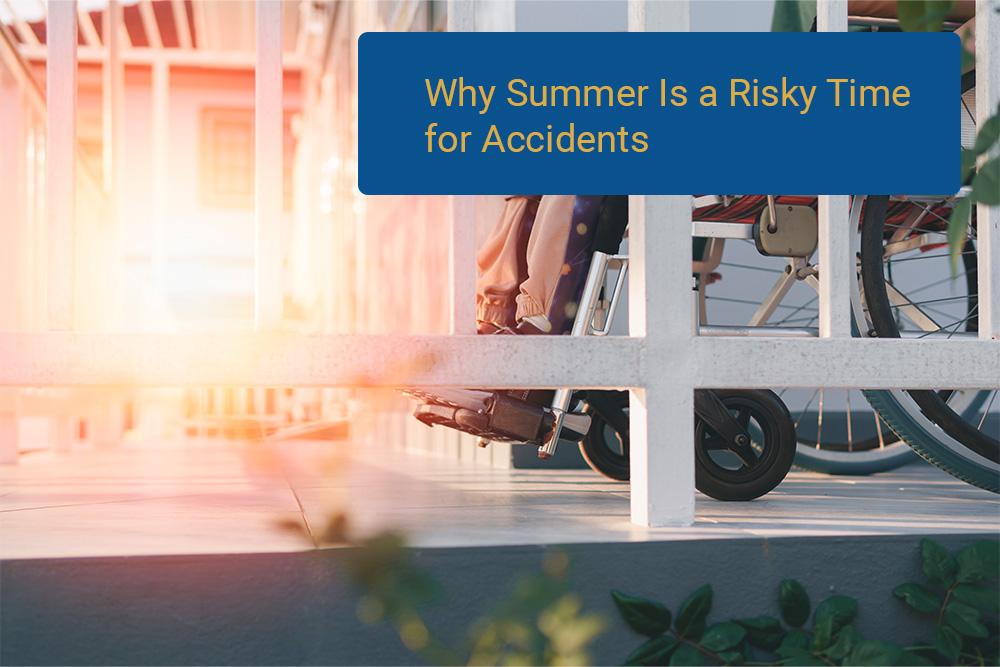
For most people, summer means being more active. Adults join softball or soccer leagues. Kids attend camps or spend hour after hour playing on backyard trampolines and in swimming pools. Any of these activities could result in a head injury. You might collide with someone on a soccer field and hit your head. You might misjudge the depth of water, dive in, and injure your head and neck.
People also travel more in the summer, and more time on the road introduces more chances of getting into a motor vehicle accident. Car crashes are a major source of TBI and frequently result in insurance claims or lawsuits that involve a Nevada injury lawyer.
Hospital emergency room workers know to expect more injuries and head traumas in the summer. A two-year long study concluded that these injuries occurred most often in summer as well as December, another month associated with travel and time off.
How to Prevent TBI This Summer

Although a brain injury attorney sincerely wants to help clients recover financially, legal action cannot take away pain or reverse lifelong disability. TBI has a high chance of altering your life in the short term and sometimes in the long term. Not everyone regains cognitive or physical function.
1. Wear Helmets
A protective shell over your head can make the difference between surviving and dying, and helmets also reduce the severity of injuries. Even though bicycling may feel safe and at low speeds, terrible bicycle accidents can happen at any time. You could hit a hole and go flying over the handlebars headfirst, and a vehicle could run you over.
In addition to bicycling, wear a helmet when riding a motorcycle or all-terrain vehicle (ATV). Both of these vehicles are associated with bad head injuries. Should you travel to a state that does not require motorcyclists to wear helmets, still wear one. Just because the law does not make you, does not mean that you become impervious to brain damage.
2. Supervise Children on Playgrounds
Young children love playgrounds, but you should only assume that some pieces of equipment are age-appropriate for some children. Playground accidents account for over 200,000 emergency department visits for children every year.
To hopefully avoid an accident, make sure that your child is not wearing clothes with drawstrings that hang down. These can get caught on equipment.
You may avoid a bad accident by inspecting the playground equipment before you set the kids loose.
Look for:
- Broken rails
- Broken boardwalks
- Concrete beneath equipment
- Sharp metal edges
- Too much space between rails
The municipality, school district, or private owner responsible for the playground could be negligent for lack of upkeep and maintenance. If your child suffered a head injury on a playground, a brain injury attorney could contact the insurer of the owner or operator.
3. Wear Your Seat Belt
Failing to buckle up when traveling in a motor vehicle places you at an enhanced risk of severe injury, TBI, and death. This is perhaps the easiest precaution you can take to protect yourself from brain injury this summer. Younger children need to be buckled into age-appropriate child or booster seats. Injury attorneys in Nevada agree that wearing your seat belt improves your legal position.
4. Wear a Life Jacket
Tubing, wakeboarding, and other water sports are great fun until something goes wrong. If you fall and hit your head, you could easily drown without a life jacket to keep you afloat. The flotation device protects you from the possibility of brain damage due to a loss of oxygen to the brain when submerged.
5. Know the Depth of Water
From time to time, injury attorneys in Nevada represent people who suffered head injuries because they dove into water that was too shallow for diving. This may happen if the water is too cloudy to see the bottom or if no signs were posted about diving hazards.
6. Check Your Yard for Tripping Hazards
Nevada personal injury attorneys can cite examples of simple clutter-causing accidents at home. A hose obscured by grass or a broken porch step could make someone fall. As the backyard fun goes on all summer, clean up or repair items that you, your family, or guests could trip over. Older people are especially at risk of tripping.
7. Beware of Heat Stress and Heat Stroke
Summers in Las Vegas are famously hot. You need to stay vigilant while playing outside because the risk of heat stress or heat stroke is real, and heat stress will strike first and then possibly be followed by heat stroke. A heat stroke may damage the brain along with other organs.
Even heat stress, as your body temperature becomes elevated, can lead to TBI. You could experience dizziness or pass out and strike your head.
Find Out How a Brain Injury Attorney Can Help

Sometimes no amount of caution can protect you from someone else’s negligence. If you or a loved one suffered a TBI, explore the possibility of a personal injury claim. A brain injury attorney at Lach Injury Law knows how to tally your current expenses and project your future expenses. Brain injury cases can be complex, and recovering damages can be an uphill battle with an insurer. For help from a Nevada injury lawyer who truly cares, call us for a free consultation.
